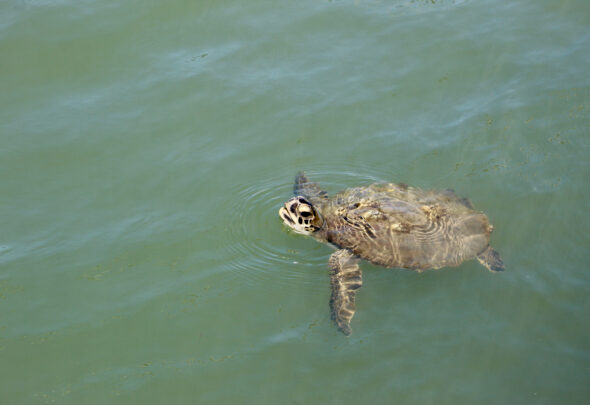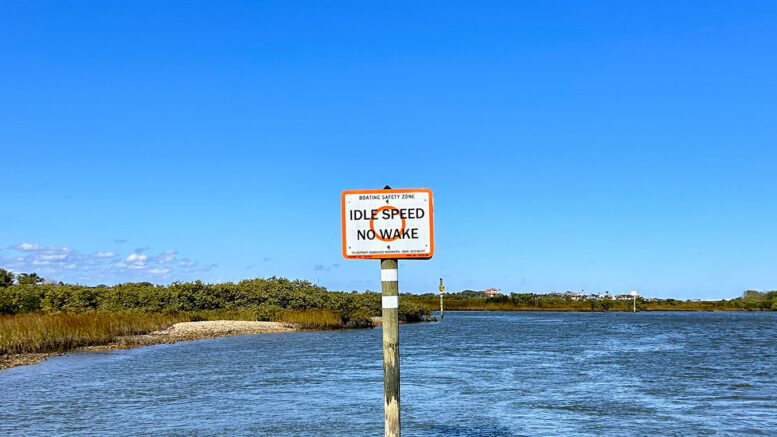By Myka Evenhouse
Boat strikes injure and kill thousands of marine organisms every year. The most vulnerable are the larger well-known animals such as green sea turtles.
Juvenile green sea turtles come to the Intracoastal of Saint Augustine in large numbers to feed. The increase in water traffic in recent years has become a threat to endangered species.
Captain Zach McKenna is the owner and operator of St. Augustine ECOTours and the head of the immediate response team to local injured animals. He directs any extra income from his tours toward local environmental initiatives.
“We respond under permit of the state to probably 50 or more boat strikes a year on juvenile green sea turtles,” McKenna said.
A frequent reason for rescue is a condition commonly called bubble butt, where trapped air in the turtle’s body prevents them from diving to safety from predators and boats.
“When we call in bubble butts, they want us to pull them or at least get them safe, get them to rehabs because the problem with the bubble butt is they are a lot more likely to get hit by a boat,” said McKenna.
In order to protect and continue studying St. Augustine’s green sea turtle populations, environmentalists are pushing for more speed restrictions in shallow water areas where turtles are likely to feed and have less room to dive.
“The goal for everything is more slow zones; the local boaters hate them, they hate being told what to do, and that’s the fight we’re in, and that’s the fight I knew I had 30 years ago,” said McKenna.
Many boat captains are unaware of the true extent of the damage caused by the area’s boating culture and recreational fishing community.
Dominic Anderson, a boat captain in Saint Augustine, has come into contact with turtles when out on his fishing charters but doesn’t see boating culture as a threat to the survival of green sea turtles.

“I do not think it has any effect on their populations, to an extent. I do believe that more boats on the water move them off their typical trail,” said Anderson.
Dr. Ed McGinley, professor of natural sciences at Flagler College, oversees student research on juvenile green sea turtles. They use images of head scale patterns to identify unique individuals.
While attending the Florida Marine Turtle Holder Permit Meeting earlier this year, McGinley listened to a group from Florida State University present their research on the effects of boat disturbances on sea turtles.
“They put, I forget the name of it, but it measures pitch and angle and swim speed of the turtle and has a video,” said McGinley. “They were able to quantify that after a turtle has a boat that goes right above it, it took about an hour and a half for the sea turtle to resume pre-boat activity.”
Through his studies, McGinley has come into contact with many injured and distressed sea turtles. He recognizes the impact the local boating culture has had on the survival of the juvenile turtles.
“I’ve seen, personally, turtles with broken flippers, with scars on the back of their shell. I’ve seen dead turtles with prop scars. So interactions with humans, mainly through our watercraft, definitely plays a role in sea turtle injury,” said McGinley.
There are severe fines for handling an injured or healthy sea turtle without permission. The Florida Fish and Wildlife Conservation Commission (FWC) can provide a permit, in some cases, or they can come out and perform a rescue.
“Because sea turtles are endangered and they are federally protected, people aren’t allowed to interact with sea turtles without permission,” said McGinley. “So, the easiest thing to do is to contact the FWC.”
To reach out to FWC, contact seaturtlestranding@myfwc.com.




Be the first to comment on "Increased Boat Traffic Threatens Endangered Green Sea Turtles"